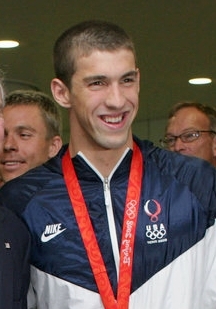"Case Study 8: A 26 year old man is very concerned about cleanliness and hygiene. He spends a significant amount of time each day washing his hands or showering, especially after touch a toilet seat, doorknob, or any other item he thinks may be dirty or contaminated. The patient explains that he is concerned about becoming infected or sick from touching these objects. He periodically acknowledges that the washing is excessive but explains that he becomes very anxious when he tries to avoid washing and eventually feels compelled to wash even more to make up for the omission."
It seems that this patient is suffering from obsessive compulsive disorder. This is an anxiety disorder, and its symptoms include persistent thoughts (called obsessions) or behaviors (known as compulsions). In this case the young man has a compulsion, which is a "forced behavior repeated inspite of its inappropriateness, or unreasonableness and associated discomfort". The patient may also have mysophobia (an extreme fear of being contaminated)
Exposure and response prevention is one possible treatment. This involves exposing the patient to his source of compulsion, and having the patient refrain from the behavior. Over time, this helps him understand that he does not need to use compulsions to relieve his anxiety, and that he has control over his own behaviors. In this case, the patient could touch something he thinks is "germy", like a door knob to a building and then refrain from washing his hands for a few hours.
http://www.helpguide.org/mental/obsessive_compulsive_disorder_ocd.htm
Friday, November 21, 2008
Obsessive Compulsive Disorder! :(
Friday, November 7, 2008
1st Post!
Hi everyone!
This is my first blog post, and in it I will talk about a famous person with a psychological disorder who manages to overcome it and become a legend. His name is... Michael Phelps.
This is my first blog post, and in it I will talk about a famous person with a psychological disorder who manages to overcome it and become a legend. His name is... Michael Phelps.

Of course, you all probably know who Michael Phelps is, but here's a quick review. Michael is one of the greatest swimming champions of all time. He recently won a record 8 gold medals at the 2008 Olympic Games in Beijing. He also won 6 gold medals in the Athens Olympic Games, which means he holds the most gold medals ever won by an Olympic athlete in his or her career.
Of course, the "Baltimore Bullet" was not always so successful in life.
Phelps was diagnosed with Attention-Deficit Hyperactivity Disorder (ADHD) when he was a young boy. This condition caused young Phelps to become very hyper. He used a lot of this energy in a multitude of sports , such as baseball, and of course, swimming. These sports also served as refuges for Phelps, who was often made fun of because of his excessive energy and large ears. Phelps soon proved very good at swimming, and his career took off.
Attention-Deficit Hyperacticity Disorder is obviously a serious disorder, but as Michael Phelps learned, it can be overcome. While ADHD's symptoms include impulsiveness and inattention, Phelps was obviously able to overcome both inattention (he has concentrated on training and preparing for swimming competitions for more than 10 years) and impulsiveness (he certainly didn't decide overnight to compete in 8 of the most difficult races in the world!).
Subscribe to:
Posts (Atom)

